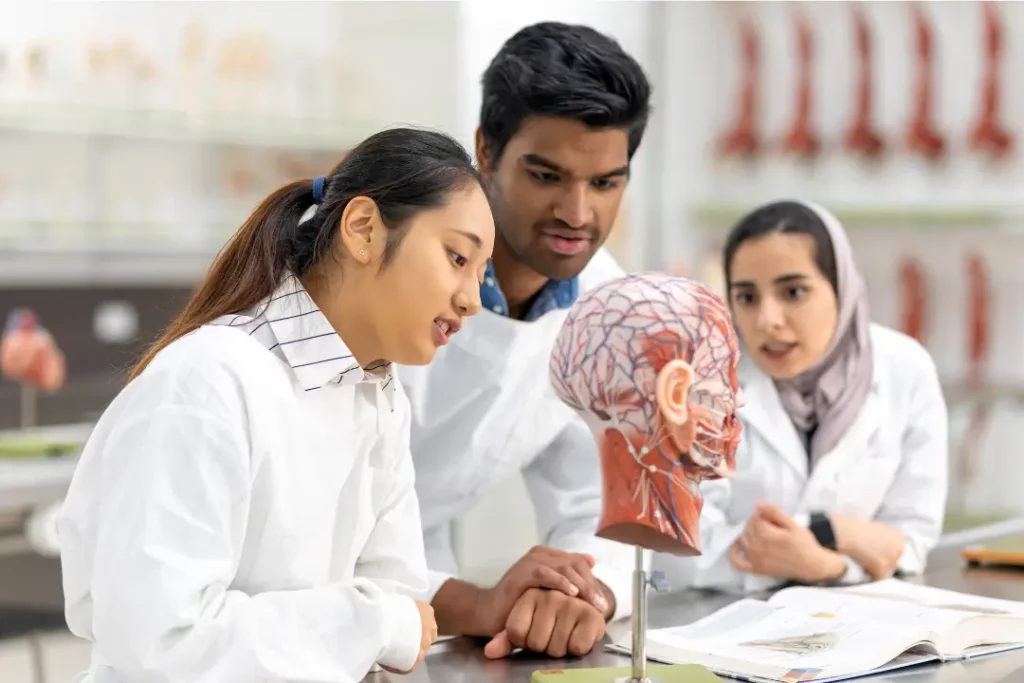
Participating in summer research programs allows students to explore academic passions, gain hands-on experience, and build valuable skills. These programs create an environment for intellectual growth and practical learning, helping students prepare for future academic and career challenges. In this article, we’ll explore research programs for high school students and provide a guide to some of the best opportunities available.
The Significance of Research Experience in High School
Participating in research during high school offers a unique opportunity for intellectual growth and discovery. Engaging in hands-on research helps students develop critical thinking, problem-solving abilities, and a deeper understanding of scientific principles. These experiences allow students to apply theoretical knowledge to real-world problems, providing a strong foundation for future academic and professional success.
Furthermore, high school research demonstrates initiative, intellectual curiosity, and a commitment to learning—qualities that are highly valued when it comes to college admissions. Highlighting research projects on applications can make students stand out, showcasing their ability to tackle complex challenges and contribute meaningfully to their chosen fields of study.
Top Research Programs for High School Students

Science Research Programs for High School Students
Research Science Institute (RSI) at MIT
The Research Science Institute (RSI) at MIT is a prestigious program designed for high-achieving students passionate about STEM. Participants engage in advanced coursework and hands-on research in a challenging academic environment. The application process is competitive, requiring strong academic records and a demonstrated interest in science and technology. Selected students gain invaluable mentorship and insights into cutting-edge scientific research.
Garcia Scholars Program at Stony Brook University
The Garcia Scholars Program focuses on materials science, offering students the chance to explore areas such as environmental sustainability and biomedical applications. This program emphasizes collaborative learning, professional mentorship, and the pursuit of innovative research. Students leave with practical experience and a strong academic foundation.
Clark Scholars Program at Texas Tech University
The Clark Scholars Program provides a wide range of research opportunities, from engineering to environmental studies. It fosters interdisciplinary learning and leadership development, preparing students for academic and professional success. The program’s emphasis on diversity and ethical considerations enriches the overall experience, equipping students to make meaningful contributions.
Simons Summer Research Program at Stony Brook University
This program allows students to conduct independent research under the mentorship of Stony Brook faculty members. Participants work on cutting-edge projects in STEM fields and present their findings at the end of the program.
Carnegie Mellon Summer Academy for Math and Science (SAMS)
SAMS provides an immersive experience in STEM disciplines, offering hands-on research opportunities and coursework aimed at underrepresented groups in science and engineering.
Boston University RISE (Research in Science & Engineering) Program
This program offers two tracks: Internship and Practicum. Students can conduct laboratory research with faculty mentors or participate in a workshop-based curriculum in computational biology.
Engineering and Technology Research Programs for High School Students
Inspirit AI Scholars Program
The Inspirit AI Scholars Program introduces students to the transformative field of artificial intelligence. Guided by experts from leading institutions, participants work on AI projects, develop algorithms, and explore the intersection of technology and society. This program equips students with critical thinking skills and practical experience in a rapidly evolving field.
MIT LaunchX for Budding Entrepreneurs
MIT LaunchX empowers entrepreneurial-minded students to turn innovative ideas into startups. Participants gain hands-on experience in business planning, product development, and market strategies. This program is an excellent choice for students interested in blending technology and entrepreneurship.
Biomedical and Health Science Research Programs for High School Students
Stanford Institutes of Medicine Summer Research Program (SIMR)
The SIMR program offers high school students an opportunity to participate in biomedical research at Stanford University. Participants engage in hands-on projects in areas like genetic engineering and stem cell research. The program emphasizes ethical considerations and provides mentorship from leading scientists, offering a comprehensive introduction to medical research.
Jackson Laboratory Summer Student Program
This program immerses students in cutting-edge genomics research, with projects addressing genetic diseases and personalized medicine. Under the guidance of experienced mentors, participants gain practical skills and contribute to impactful scientific advancements. The experience fosters a deep understanding of genetics and its applications.
NIH Summer Internship Program (SIP)
This prestigious program allows students to work in National Institutes of Health laboratories, engaging in biomedical research and gaining exposure to health sciences careers.
Rosetta Institute Molecular Biology Workshops
These workshops focus on molecular biology techniques and their applications in medicine, including topics like cancer biology, immunology, and neuroscience.
Unique Research Programs for High School Students
NASA High School Aerospace Scholars
The NASA High School Aerospace Scholars program introduces students to the exciting world of space science. Participants engage in engineering challenges, mission planning, and collaborative learning under NASA’s guidance. The program provides a strong foundation for students interested in aerospace engineering and space exploration.
Garcia-Rossi Summer Scholars at the University of Rochester
The Garcia-Rossi program offers opportunities in interdisciplinary research, blending engineering, natural sciences, and innovative problem-solving. Students collaborate on projects addressing real-world challenges, gaining skills that extend beyond the laboratory.
UC Santa Cruz Science Internship Program (SIP)
Students work alongside researchers at UCSC, participating in diverse projects such as astrophysics, marine biology, and bioinformatics.
Illinois Mathematics and Science Academy (IMSA) Summer STEM Programs
IMSA offers a variety of research-focused summer programs in STEM fields for motivated high school students. These programs encourage creative problem-solving and collaboration.
Preparing for a High School Research Program

Application Tips for High School Students
- Highlight Your Curiosity: Showcase your passion for learning and discovery in STEM fields.
- Demonstrate Problem-Solving Skills: Share examples of academic or extracurricular projects that highlight your critical thinking abilities.
- Emphasize Teamwork: Highlight collaborative experiences to demonstrate your ability to work effectively in a team setting.
- Reflect on Academic Preparation: Mention advanced coursework or workshops that have prepared you for rigorous research programs.
Maximizing Your Summer Research Experience
- Engage Fully: Dive into projects and embrace the challenges of hands-on research.
- Seek Mentorship: Build relationships with mentors and instructors to gain insights and guidance.
- Network: Connect with peers to share knowledge and experiences.
- Participate Actively: Take advantage of seminars and workshops to enhance your learning experience.
- Publish your Research: Make the most of your experience by submitting your work to professional publications for broader recognition and impact.
Conclusion
Summer research programs provide transformative experiences, equipping students with practical skills, academic insights, and a sense of social responsibility. They foster intellectual curiosity, critical thinking, and a collaborative spirit, laying the groundwork for future success in STEM fields. By participating in these programs, students not only enhance their academic profiles but also gain a deeper understanding of the impact their work can have on the world.








